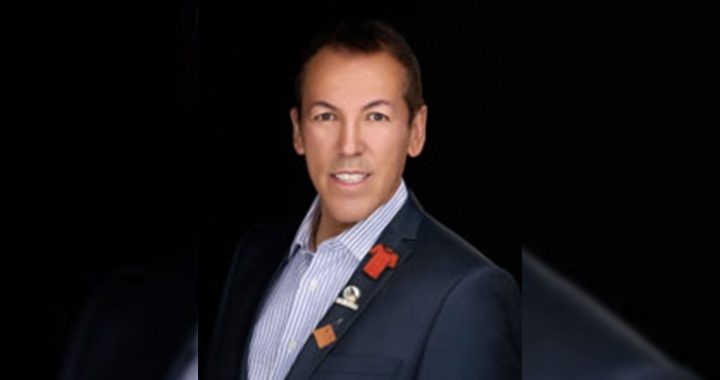Document: Ottawa’s funding shortfall put East Coast FN children at ‘high’ risk of ‘serious harm’
A funding shortfall faced by Aboriginal Affairs on the East Coast put First Nation children at “high” risk of “exposure” to “serious harm,” according to an internal department document that surfaced during a Canadian Human Rights Tribunal hearing wrapping up this week.
By Jorge Barrera
APTN National News
A funding shortfall faced by Aboriginal Affairs on the East Coast put First Nation children at “high” risk of “exposure” to “serious harm,” according to an internal department document that surfaced during a Canadian Human Rights Tribunal hearing wrapping up this week.
Aboriginal Affairs’ Atlantic regional office requested an additional $4.6 million during the tail-end of the 2012-2013 fiscal year to cover a shortfall that threatened its ability to deliver child and family services in New Brunswick and on the Eskasoni First Nation, according to the document, called an “Internal Re-Allocation Request.”
The request, which was approved by the department’s regional director general for the Atlantic region on Nov. 30, 2012, stated the department also faced a “high” legal risk if it failed to obtain the needed money.
“In the case of Mi’kmaq Family and Children’s Services (funding for Eskasoni) not being funded the continuance of inadequate service delivery in the agency could lead to exposure of First Nations children to serious harm,” said the document. “In the case of the New Brunswick agencies not being funded could also lead to exposure of First Nation children to serious harm and also breaching our funding responsibility.”
The document highlights the funding knife-edge the department walks when it comes to child and family services. It is one of several documents that have surfaced during the last year and-a-half of hearings before the Canadian Human Rights Tribunal on whether Ottawa discriminates against First Nations children through its alleged underfunding of the First Nation child welfare system.
Internal Re-Allocation Request Document
In Ottawa’s own submission before the tribunal, the First Nation Child and Family Services agency in Nova Scotia received an additional $6 million a year since 2011 to deal with a “crisis situation.”
The First Nation Child and Family Caring Society (FNCFCS) and the Assembly of First Nations launched the human rights discrimination complaint against Ottawa in 2007, arguing that Aboriginal Affairs discriminated against First Nations children by not funding child and family services to the same level as the provinces.
The human rights complaint was launched after former Aboriginal affairs minister Jim Prentice ignored a request from former Assembly of First Nations national chief Phil Fontaine to act on the issue, said Cindy Blackstock, executive director for the FNCFCS. Blackstock said Fontaine asked Prentice to implement recommendations in a report funded and accepted by the department in 2005. Prentice never responded, she said. The report was the result of a study into improving First Nation child and family services. It was produced by experts, the federal department, the AFN and FNCFCS.
The same year the AFN and FNCFCS launched their human rights complaint, a senior policy analyst with Aboriginal Affairs’ child and family services branch wrote a memo stating the department was millions of dollars short of providing services comparable to the provinces.
Barbara D’Amico, the senior policy analyst, wrote that expenditures within the department’s child and family services program had grown from $193 million to $450 million between 1996 and 2007. This far outstripped funding for the program which grew from $193 million to $260 million over the same time period, forcing the department to reallocate roughly $190 million to “cover program growth,” stated D’Amico.
“Even with these reallocated dollars, the program is not able to meet provincial comparability,” wrote D’Amico, in the Nov. 15, 2007, memo.
D’Amico Memo
Blackstock said the department is still falling short, even under its Enhanced Prevention Focused Approach (EPFA), which began in Alberta and now includes Saskatchewan, Manitoba, Quebec, Nova Scotia and Prince Edward Island.
“The Auditor General reviewed that in 2008 and 2011 and found it to be flawed and inequitable in both of those cases,” said Blackstock.
Aboriginal Affairs, through Justice Canada lawyers before the tribunal, dismissed memos like the one from D’Amico as nothing more than the personal opinion of department officials that should not be given much weight because they lacked context. Justice Canada is also dismissive of the Auditor General’s and provincial Children’s advocate reports because the authors were not called as witnesses.
The Canadian Human Rights Commission, which is also intervening in support of the discrimination case, countered that, under the Auditor General Act, the Auditor General can’t be called as a witness in a non-Criminal Code case. The commission also disputed Justice Canada’s claim memos from federal officials should also be discounted.
“If public servants’ statements and observations on the programs they are responsible for cannot be used as evidence of how those programs actually work, it is difficult to see who else could provide such information,” said the commission, in its submission.
The federal government has spent millions of dollars fighting the case so far. It has lost several attempts to avoid reaching this week’s final submissions which will leave the matter in the hands of the three-person tribunal panel to decide.
Ottawa has consistently argued that the case is outside of the tribunal’s jurisdiction.
“The complaint is primarily based on the allegation that the federal government does not fund child and family service providers for First Nation children living on reserve to the same level that service providers off reserve are funded by the provincial and Yukon governments and that such different funding constitutes discrimination,” said Justice Canada’s submission before the tribunal. “This allegation was not borne out by the evidence.”
Blackstock said Canadians should be shocked by the federal government’s position on the case.
“There has never been a case in the world where a developed country like Canada has literally been on trial for discriminating against a contemporary generation of First Nations children. That in itself should shock Canadians,” said Blackstock. “The truth is very disturbing. If we only rely on the government’s own documents, they call the funding for First Nations children woefully inadequate, creating a situation that is dire. They have a document where they say the risk of children dying is extreme. And we need not look very far to realize in the case of Tina Fontaine how very real and tragic that is.”
There are currently between 30,000 to 40,000 Indigenous children in care across the country, according to Aboriginal Affairs’ numbers from 2012.
The department claims it spends between $627 million to $630 million annually on child and family services.
The hearings continue Tuesday in Ottawa.
@JorgeBarrera










